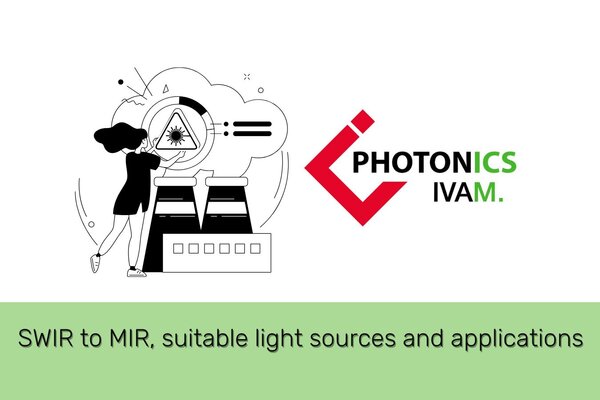
Discuss with other IVAM members the current trends and developments in the field of MIR and SWIR.
In the first part, Kristijonas Vizbaras from Brolis Sensor will present widely tunable III-V/silicon lasers for spectroscopy in the shortwave infrared range. The availability of such lasers, which operate in the short-wave range of 2-2.5 μm, is very valuable for spectroscopic measurement, as many important industrial gases and blood sugars have absorption bands there. Integrated silicon photonic circuits (ICs) in the 2-4 μm wavelength range thus enable the development of miniature optical sensors for the detection of trace gases and biomolecules. Christian Rosenberg Petersen from Norblis will then provide insights into broadband mid-infrared laser technologies and their applications, e.g. in the automotive industry.
These and further questions will be discussed at the next Photonics Focus Group meeting. This will provide a basis for discussion on opportunities and trend directions for photonics companies. In addition to the talks, the discussion round will provide the opportunity for networking and the exchange of knowledge and experience.
In the second part of the meeting, further activities of the Focus Group will be coordinated.
The necessary access data for the Zoom video conference will be sent out shortly before the event!
Participation in IVAM Focus Group meetings is free of charge for association members. Non-members may attend three times for a fee. In this case, we charge an administrative fee of € 50.00 (plus VAT), which is also due in case of non-participation. Of course, it is possible to nominate a substitute participant at any time and without additional costs.
On 22–23 June 2026, the IVAM Hightech Summit will take place in Leiden, the Netherlands. Hosted at CORPUS, the 1.5-day …
IVAM will be represented with its own joint booth for the first time at XPONENTIAL Europe 2026 in Düsseldorf. This …
This holiday season, we celebrate the joy that comes from working together. Across the globe, our shared commitment to innovation …